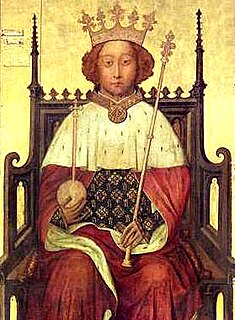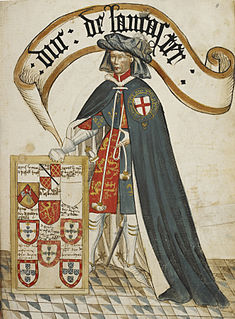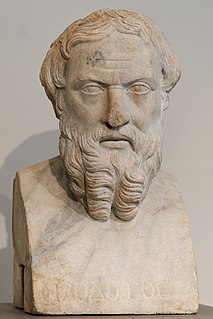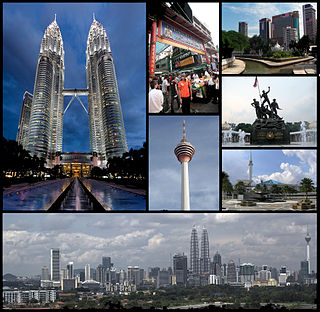
John Wycliffe, was an English scholastic philosopher, theologian, Biblical translator, reformer, English priest, and a seminary professor at the University of Oxford, became an influential dissident within the Roman Catholic priesthood during the 14th century and is considered an important predecessor to Protestantism.

Richard II, also known as Richard of Bordeaux, was King of England from 1377 until he was deposed in 1399. Richard, a son of Edward the Black Prince, was born in Bordeaux during the reign of his grandfather, Edward III. His father was Prince of Aquitaine. Richard was the younger brother of Edward of Angoulême, upon whose death Richard, at three years of age, became second in line to the throne after his father. Upon the death of Richard's father prior to the death of Edward III, Richard, by primogeniture, became the heir apparent to the throne. With Edward III's death the following year, Richard succeeded to the throne at the age of ten.

Henry IV, also known as Henry Bolingbroke, was King of England from 1399 to 1413, and asserted the claim of his grandfather, Edward III, to the Kingdom of France.

John of Gaunt, Duke of Lancaster was an English prince, military leader, and statesman. He was the third of the five sons of King Edward III of England who survived to adulthood. Due to his royal origin, advantageous marriages, and some generous land grants, Gaunt was one of the richest men of his era, and an influential figure during the reigns of both his father, Edward, and his nephew, Richard II. As Duke of Lancaster, he is the founder of the royal House of Lancaster, whose members would ascend to the throne after his death. His birthplace, Ghent, corrupted into English as Gaunt, was the origin for his name. When he became unpopular later in life, scurrilous rumours and lampoons circulated that he was actually the son of a Ghent butcher, perhaps because Edward III was not present at the birth. This story always drove him to fury.

The Duke of Lancaster is the owner of the estates of the Duchy of Lancaster. It is also an ancient title that is informally used within Lancaster to describe Elizabeth II, the monarch of the United Kingdom. The Duchy of Lancaster exists as a separate entity from the Crown Estate and currently provides income for the British monarch.

The House of Lancaster was the name of two cadet branches of the royal House of Plantagenet. The first house was created when Henry III of England created the Earldom of Lancaster—from which the house was named—for his second son Edmund Crouchback in 1267. Edmund had already been created Earl of Leicester in 1265 and was granted the lands and privileges of Simon de Montfort, 6th Earl of Leicester, after de Montfort's death and attainder at the end of the Second Barons' War. When Edmund's son Thomas, 2nd Earl of Lancaster, inherited his father-in-law's estates and title of Earl of Lincoln he became at a stroke the most powerful nobleman in England, with lands throughout the kingdom and the ability to raise vast private armies to wield power at national and local levels. This brought him—and Henry, his younger brother—into conflict with their cousin Edward II of England, leading to Thomas's execution. Henry inherited Thomas's titles and he and his son, who was also called Henry, gave loyal service to Edward's son—Edward III of England.
Simon Sudbury was Bishop of London from 1361 to 1375, Archbishop of Canterbury from 1375 until his death, and in the last year of his life Lord Chancellor of England.

William of Wykeham was Bishop of Winchester and Chancellor of England. He founded New College, Oxford, and New College School in 1379, and founded Winchester College in 1382. He was also the clerk of works when much of Windsor Castle was built.

Edmund of Langley, 1st Duke of York, KG was the fourth surviving son of King Edward III of England and Philippa of Hainault. Like many medieval English princes, Edmund gained his nickname from his birthplace: Kings Langley Palace in Hertfordshire. He was the founder of the House of York, but it was through the marriage of his younger son, Richard of Conisburgh, 3rd Earl of Cambridge, to Anne de Mortimer, great-granddaughter of Edmund's elder brother Lionel of Antwerp, 1st Duke of Clarence, that the House of York made its claim to the English throne in the Wars of the Roses. The other party in the Wars of the Roses, the incumbent House of Lancaster, was formed from descendants of Edmund's elder brother John of Gaunt, 1st Duke of Lancaster, Edward III's third son.

The title of Earl of Lancaster was created in the Peerage of England in 1267. It was succeeded by the title Duke of Lancaster in 1351, which expired in 1361.

Henry of Grosmont, 1st Duke of Lancaster, 4th Earl of Leicester and Lancaster, Earl of Derby, KG, of Bolingbroke Castle in Lincolnshire, was a member of the English royal family and a prominent English diplomat, politician, and soldier. He was the wealthiest and most powerful peer of the realm. The son and heir of Henry, 3rd Earl of Lancaster, and Maud Chaworth, he became one of King Edward III's most trusted captains in the early phases of the Hundred Years' War and distinguished himself with victory in the Battle of Auberoche. He was a founding member and the second Knight of the Order of the Garter in 1348, and in 1351 was created Duke of Lancaster. An intelligent and reflective man, Grosmont taught himself to write and was the author of the book Livre de seyntz medicines, a highly personal devotional treatise. He is remembered as one of the founders and early patrons of Corpus Christi College, Cambridge, which was established by two guilds of the town in 1352.

Sir Thomas Erpingham was an English knight who became famous as the commander of King Henry V's longbow wielding archers at the Battle of Agincourt. He was immortalised as a character in the play Henry V by William Shakespeare. It is, however, his lengthy and loyal service to John of Gaunt, Henry IV and Henry V, which contributed significantly to the establishment of the House of Lancaster upon the English throne, that is his true legacy.

Isabella of Castile, Duchess of York was the daughter of King Peter and his mistress María de Padilla. She accompanied her elder sister, Constance, to England after Constance's marriage to John of Gaunt, 1st Duke of Lancaster, and married Gaunt's younger brother, Edmund of Langley, 1st Duke of York.

John de Vere, 12th Earl of Oxford, was the son of Richard de Vere, 11th Earl of Oxford, and his second wife, Alice Sergeaux (1386–1452). A Lancastrian loyalist during the latter part of his life, he was convicted of high treason and beheaded on Tower Hill on 26 February 1462.
Gerald Leslie Harriss FBA, MA, DPhil.(Oxon), was an English historian of the Late Middle Ages. His work focused on the parliamentary and administrative history of the period. Harriss was a Fellow of Magdalen College, Oxford.

William de Ufford, 2nd Earl of Suffolk was an English nobleman in the reigns of Edward III and Richard II. He was the son of Robert de Ufford, who was created Earl of Suffolk by Edward III in 1337. William had three older brothers who all predeceased him, and in 1369 he succeeded his father. In the 1370s, he participated in several campaigns of the Hundred Years' War, but this period was not a successful one for England. Suffolk was closely connected to Thomas Beauchamp, Earl of Warwick and John of Gaunt, Duke of Lancaster, and his conciliatory skills were highly valued in national politics. He helped arbitrate in the conflict between Gaunt and the parliamentary Commons during the Good Parliament. In 1381, Suffolk took part in suppressing the Peasants' Revolt in East Anglia, after narrowly escaping the rebels himself. He died suddenly in 1382 while attending parliament, and since he had no surviving children, his title became extinct and his property was dispersed.
William James Simpson is an Australian-American medievalist.
Adam Houghton, also known as Adam de Houghton, was Bishop of St David's from 1361 until his death and Lord Chancellor of England from 1377 to 1378.
Edward of Angoulême was second in line to the throne of the Kingdom of England and heir apparent to the Earldom of Kent. Born in Angoulême, he was the eldest child of Edward, Prince of Wales, commonly called "the Black Prince", and Joan, Countess of Kent, and thus was a member of the House of Plantagenet. Edward's birth, during the Hundred Years' War, was celebrated luxuriously by his father and by other monarchs, such as Charles V of France.

In Post-classical history, an affinity was a collective name for the group of (usually) men whom a lord gathered around himself in his service; it has been described by one modern historian as "the servants, retainers, and other followers of a lord", and as "part of the normal fabric of society". It is considered a fundamental aspect of bastard feudalism, and acted as a means of tying magnates to the lower nobility, just as feudalism had done in a different way.

















